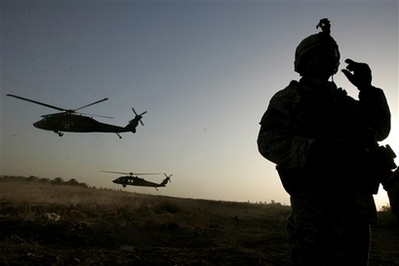Studies: Iraq costs US $12b per month
(Agencies)
Updated: 2008-03-10 20:29
Updated: 2008-03-10 20:29
The flow of blood may be ebbing, but the flood of money into the Iraq war is steadily rising, new analyses show. In 2008, its sixth year, the war will cost approximately $12 billion a month, triple the "burn" rate of its earliest years, Nobel Prize-winning economist Joseph E. Stiglitz and co-author Linda J. Bilmes report in a new book.
|
|
Beyond 2008, working with "best-case" and "realistic-moderate" scenarios, they project the Iraq and Afghan wars, including long-term US military occupations of those countries, will cost the US budget between $1.7 trillion and $2.7 trillion -- or more -- by 2017.
Interest on money borrowed to pay those costs could alone add $816 billion to that bottom line, they say.
The nonpartisan Congressional Budget Office (CBO) has done its own projections and comes in lower, forecasting a cumulative cost by 2017 of $1.2 trillion to $1.7 trillion for the two wars, with Iraq generally accounting for three-quarters of the costs.
Variations in such estimates stem from the sliding scales of assumptions, scenarios and budget items that are counted. But whatever the estimate, the cost will be huge, the auditors of the Government Accountability Office say.
In a Jan. 30 report to Congress, the GAO observed that the US will be committing "significant" future resources to the wars, "requiring decision makers to consider difficult trade-offs as the nation faces an increasing long-range fiscal challenge."
These numbers don't include the war's cost to the rest of the world. In Iraq itself, the 2003 US-led invasion -- with its devastating air bombardments -- and the looting and arson that followed, severely damaged electricity and other utilities, the oil industry, countless factories, hospitals, schools and other underpinnings of an economy.
No one has tried to calculate the economic damage done to Iraq, said spokesman Niels Buenemann of the International Monetary Fund, which closely tracks national economies. But millions of Iraqis have been left without jobs, and hundreds of thousands of professionals, managers and other middle-class citizens have fled the country.In their book, "The Three Trillion Dollar War," Stiglitz, of Columbia University, and Bilmes, of Harvard, report the two wars will have cost the US budget $845 billion in 2007 dollars by next Sept. 30, end of fiscal year 2008, assuming Congress fully funds Bush administration requests. That counts not just military operations, but embassy costs, reconstruction and other war-related expenses.
That total far surpasses the $670 billion in 2007 dollars the Congressional Research Service says was the US price tag for the 12-year Vietnam War.
|
|
|
||
|
||
|
|
|
|


